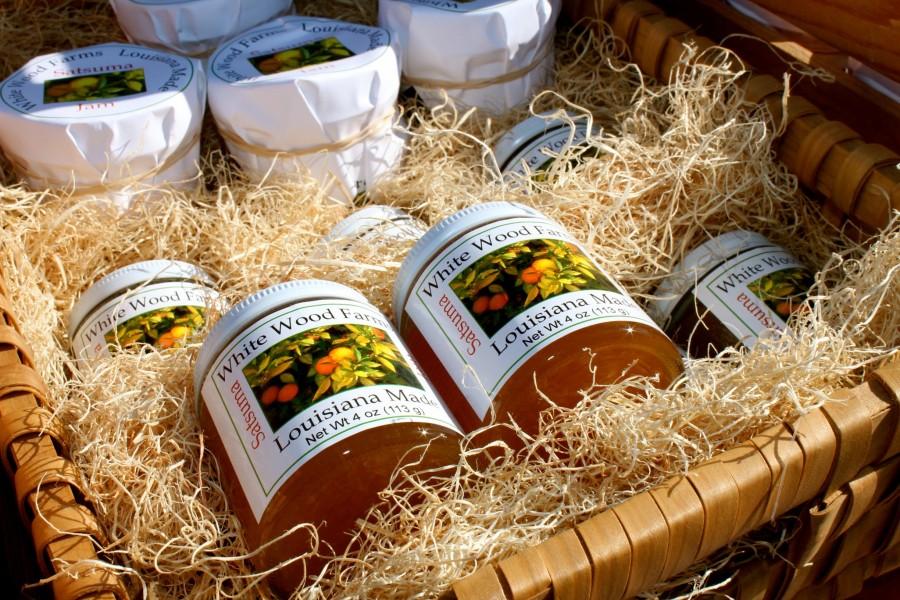Ask students on campus if they eat locally grown foods and most will tell you the same thing: they would if they could. Many say that not only are locally grown foods too expensive, but they’re hard to access within a college community. New Orleans farmers markets and restaurants are trying to combat this misconception by fostering the farm-to-table concept in a realistic way.
Market Umbrella, an organization started in 1995 by Executive Director Richard McCarthy, aims to reinvent the tradition of public markets by allowing regional farmers to sell the fruits of their labor directly to consumers. The organization was created and fostered at Loyola’s Twomey Center for Peace through Justice and partnered with both the business school and LUCAP to, as McCarthy puts it, “twin the university resources with social change needs out there in the region, based around our shared love of food.”
Here in New Orleans, Market Umbrella runs the thrice-weekly Crescent City Farmers Market to try and bring back the once booming public market system in the city. McCarthy said he was motivated to start the organization after he noticed that some of the cultural aspects of New Orleans were being lost through the ever-prevailing obsession with grocery stores. Farmers markets, McCarthy said, was a way to not only support local farmers but also to allow people to gain a better understanding about where the food came from.
“The grocery store is like a vending machine. You say, ‘I want this,’ and it falls from the sky, you have no idea how it got there. Here, you get to know how it got here and it’s only here, therefore you begin to learn to eat seasonally, and you ride the waves of the season,” he said.
McCarthy stresses the importance of farmers markets, noting their abundance is reflective of the health of the food system in any given city. Economically, farmers markets are highly beneficial because by supporting regional farmers local money is kept circulating locally, which in turn generates community wealth. From a public health standpoint, McCarthy said farmers markets are essential because it allows members of the community to know who is growing the food and how it is being farmed. However, the most important aspect of eating locally grown foods, McCarthy said, is one that is not so obvious: it defends our region’s strong sense of cultural integrity.
These days, the food we eat is usually pulled out of a freezer and thrown in a fryer; a harrowing fact for a community with such a proud food culture. Some restaurants in New Orleans are discouraged by this development and seek to counter it by purchasing their produce at places such as the Crescent City Farmers Market and Hollygrove Market and Farm. It is in this way that local eateries, such as Herbsaint, Cochon and Satsuma are keeping a toehold in the authenticity of the city’s food culture.
“We try to feature dishes that are ingredient centered; not everything is necessarily healthy, but the quality of the locally grown ingredients is high,” said chef Michael Costantini of Satsuma.
High quality ingredients are something Loyola students are not incredibly accustomed to. At a university where nearly all food products come from Sodexo, the university’s food supplier, it can be nearly impossible to maintain a diet of fresh, healthy ingredients. Bill Pastellak, community coordinator for the Hollygrove Market and Farm, said his organization helps solve this problem with a home delivery service.
“We know many people are strapped for time and can’t make it to the market, so our home delivery service makes it easy to get your weekly share of fresh, local produce,” he said.
Another one of the major reasons why students don’t eat locally grown food is because of the supposed high expense. However, according to McCarthy, Crescent City Farmers Market’s in-season produce prices are actually lower than at the grocery store.
“Anything that is peak-of-season is much cheaper than the grocery store,” McCarthy said.
Whatever the price, senior sociology major Camille Fiess says that eating locally grown food should be a priority for students.
“Although eating locally can be expensive, if you make it a priority and cut something unnecessary off the grocery list, it’s totally doable. Even if you ordered out one less time a week, you would be able to afford the difference between local and non-local,” Fiess said.
Kathy Anzelmo, a biological science professor at Loyola, wished to foster the importance of eating locally by creating a community garden on campus. Unfortunately, because of the construction on Monroe Hall, this garden no longer exists. She also said along with the many benefits of eating locally, one that is commonly overlooked is the positive effect on the environment.
“The main importance of eating locally is the carbon footprint issue. It is much better for the environment to buy food that is locally grown, within a 250 mile radius, than fruits and veggies that are grown in Florida, California, Chile or Mexico and then trucked in for thousands of miles using gasoline,” Anzelmo said.
By understanding where our food comes from, supporting the efforts of local farmers and defending our cultural integrity, students can become what McCarthy calls the next generation of good eaters.







